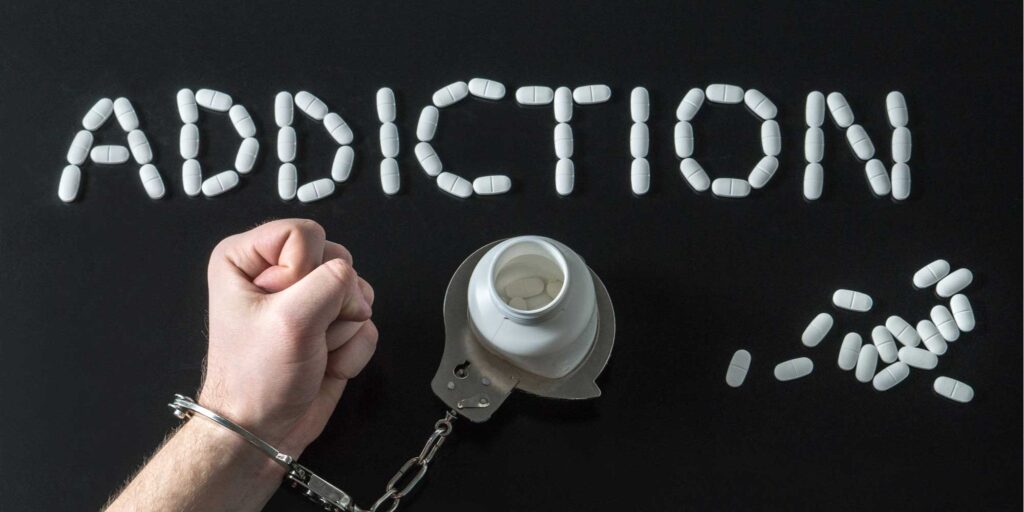Addiction is a primary, chronic, neurobiologic disease, with genetic, psychosocial, and environmental factors influencing its development and manifestations.
It is characterized by behaviours that include one or more of the following: impaired control over drug use, compulsive use, continued use despite harm, and craving
The difference between addiction and abuse is oftentimes unclear. It’s a difficult call to make as a family member or a close friend that is dealing with a person like this in their life, but ultimately it is a call that only the addict can make for themselves.
There are many different types of addiction out there that people suffer from every single day, not just drug and alcohol addiction.
Some of the common addictions we see are gambling, food, eating disorders, shopping, money, and many more. Those are just a couple of the major addictions we see in the world that affect many more people than the average person thinks.
Many of these addictions are things that people do every day, and when not done in excess are completely normal which makes it hard to see when someone has a problem with it.
TYPES OF ADDICTIONS
1. Alcohol Intoxication: Alcohol intoxication is defined as when the quantity of alcohol the person consumes produces behavioral or physical abnormalities. Intoxicated people often receive IV fluids for dehydration (alcohol is a diuretic and increases urine output) and B complex vitamins for dehydration and to prevent delirium, and as a precaution or treatment for vitamin deficiency.
2. Barbiturate Abuse: They are generally the class of drugs, calles as sedative hypnotics, that usually describes the sllep inducing and anxiety relieving effects.
3. Club Drugs: These are evolved and became famous from the adolescents and young adults, that includes ketamine, amphetamine and inhalants

4. Cocaine Abuse: Cocaine is presently one of the most abused major stimulant drugs in America. It has recently become the drug most frequently involved in emergency department visits. Since there is little medication treatment for cocaine addiction, rehabilitation, also referred to as “rehab,” generally involves mental-health and social (psychosocial) approaches.
Those approaches often focus on establishing a good working relationship with the cocaine addict, motivating him or her, enhancing strengths, and helping the person develop strategies for recovery, including abstaining from drug use and reducing their cravings.
5. Narcotics: Pain is one of the most common reasons people seek medical treatment. Doctors can prescribe different types of medications to relieve pain. The most potent pain-relieving medications are narcotics (opiates or opioids).
In the United States, narcotics are widely prescribed to treat painful conditions. Narcotics are often prescribed in conjunction with other less potent drugs (such as nonsteroidal antiinflammatory medications) or as a pill that has a combination of a narcotic with either acetaminophen (for example, Tylenol) or aspirin.
The use of prescription pain relievers without a doctor’s prescription only for the experience or the feeling it causes is often called “nonmedical” use. Narcotic use is considered abuse when people use narcotics to seek feelings of well-being apart from the narcotic’s pain-relief applications.
SAMHSA’s Drug Abuse Warning Network reported that approximately 597,000 emergency department visits in 2012 involved the nonmedical use of alcohol or other illicit drugs, including pain relievers.
The most common long-term treatment of the narcotic withdrawal syndrome is substituting methadone for the illicit drug, followed by a slow process of then weaning the abuser off the methadone.
6. Smoking cigarettes: Treatment consists of two broad areas.
The medical conditions caused by smoking – respiratory illness, heart disease, circulatory disease, cancer, ulcers – need to be treated. In addition to stopping smoking, any associated medical condition, if one is present, needs to be addressed by the patient’s doctor. Smokers need to discuss treatments for their individual diagnosis with their doctor.
– Group or behavioral counseling. The most successful quitting programs use combinations of drug treatment and counseling and have success rates of 5% after 1 year.
– The prescription antidepressant bupropion (Zyban, Wellbutrin) has also been shown to help some people quit smoking.
Smokers trying to quit need lots of support and encouragement to help handle the inevitable urges to light up.
Doctors, although trained in the diagnosis and treatment of smoking-related illnesses, may be less comfortable in providing the counseling and drug treatment smokers need to quit.
SYMPTOMS OF ADDICTIONS
Declining performance at school
- Poor performance at work
- Hygiene issues
- Depleted energy
- Difficulty in maintaining relationships
- Mental health issues
- Weight loss
- Defensiveness
TREATMENTS FOR ADDICTION
There are various types of treatments for different addictions. The type of addiction treatment you will receive depends on the following factors –
- Level of care you need
- Your mental health status
- The substance you’re addicted to
- Your economic condition
The six types of addiction treatments are –
Medication – Medications can be used to reduce cravings, stabilise your mood, and help with withdrawal.
12-step Programs – It is a form of therapy where a group of people and their mentor talk about their journeys and steps to overcome addiction. Some examples of such programs are – Alcoholics Anonymous, Overeaters Anonymous etc.
Detoxification – Addiction specialists help you get rid of the abused substance from your body in a medically-safe procedure called detoxification. Detoxification can save an addict’s life if they have ingested more product than is safe.
Cognitive Behavioural Therapy – CBT helps you control your behavior, identify your triggers, and develop suitable coping methods.
Rational Emotive Behaviour Therapy – REBT helps you combat & recognize negative thoughts. It helps you get in touch with your rational side.
Contingency Management – It helps you reinforce positive behaviour like avoiding the substance you abuse and maintaining your sobriety. It helps you by rewarding you.
